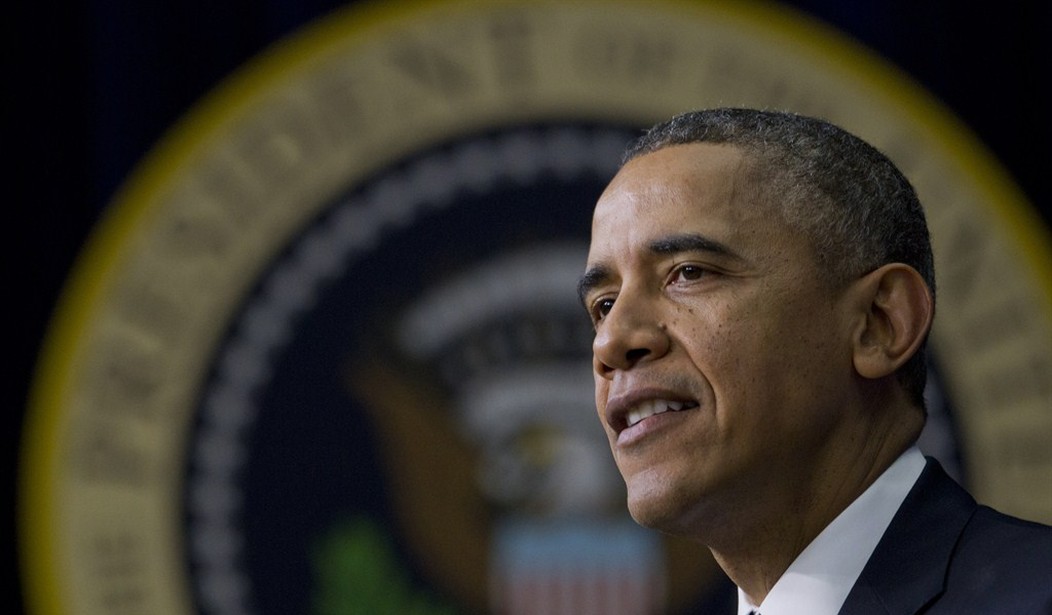One striking thing about the new White House Obamacare promotion campaign is that so far it hasn't had much to say about the central focus of Obamacare, which is helping Americans buy affordable health insurance.
Look at the cases President Obama has highlighted. There are young people who say they have benefited from being allowed to stay on their parents' health policies until age 26. There are people suffering from serious illnesses who say they are thankful there will no longer be lifetime caps on insurance benefits. There are stories of people with pre-existing conditions who will be able to purchase coverage.
Obama's pitch for those features of his national health care scheme is one he could have made -- and did make -- a year, or two years, or three years ago. Indeed, in the years after Obamacare was signed into law in March 2010, the president and his Democratic allies often stressed the same topics they're stressing now.
The difference, of course, is that the Obamacare exchanges now exist, and Americans have just days to go before a Dec. 23 deadline to purchase coverage that will begin on Jan. 1, 2014. And while tens of millions of people are being affected, many negatively, by the changes in insurance markets brought on by Obamacare, the benefits the administration often cites involve far smaller groups of people.
Take the issue of pre-existing conditions. Beginning a recent press briefing, spokesman Jay Carney said the White House particularly wants to highlight "the Affordable Care Act's protections for consumers with pre-existing conditions." A short time earlier, Carney claimed that "up to 129 million Americans who have a pre-existing condition for which they could have been denied coverage or charged more up to now are protected, because denying them coverage is prohibited beginning in 2014."
Recommended
The White House's numbers are vastly overstated. In 2010, Rep. Henry Waxman and other Democrats then in control of the House Energy and Commerce Committee tried to determine how many people had been denied coverage because of a pre-existing condition. They did not come up with a definitive number, but they found that in the previous two years, the nation's four largest for-profit health insurance companies had denied coverage to 651,000 people based on pre-existing conditions.
Around the same time, conservative analysts James Capretta and Tom Miller examined the issue and noted estimates that the number of Americans who might be denied such coverage was between 2 million and 4 million, and quite possibly far smaller than even the low end of that range. That is a significant number of people, with a real problem that needs addressing. But it's not 129 million. It's not even a small fraction of that number.
"It's a very small group in our large country," says another conservative analyst, Yuval Levin, "but the fear of falling into it is a powerful political force."
One way the Obama administration fed that powerful political force was to exaggerate the problem.
Indeed, a larger number of people -- perhaps 5 million in the nation's individual insurance market -- are now facing cancellation of their coverage and far higher premiums and deductibles in the new policies they must purchase. And yet the administration has dismissed them as a tiny part of the U.S. population. "It's a relatively small number of people in the overall scheme of things," Health and Human Services Secretary Kathleen Sebelius said last month.
What is indisputable is that the aspects of Obamacare the White House cites most often in its promotional campaign -- the pre-existing conditions policy, or the estimated 3.4 million young Americans who can stay on their parents' coverage until age 26 -- involve numbers that are far smaller than the tens of millions of people who will likely face steeper costs, nearly unpayable deductibles and sharply limited doctor choices under Obamacare. (In addition to the 10-million person individual market, some experts believe such problems are coming soon to the 45-million person small-group market.)
And that is why the White House sales campaign focuses on the same things Democrats said in 2009, and 2010, and 2011, and 2012. Back then, the burdens of Obamacare had not yet become a reality for most Americans. Now they have, and the administration does not have a good answer for the millions who will struggle under the new system. No wonder the president is talking about something else.
























Join the conversation as a VIP Member